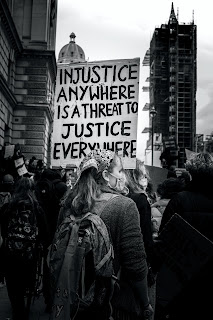Day 100 – Celebrations!!

Photo by Ray Hennessy on Unsplash Day 100 – Celebrations!! It’s my last day of sabbatical and I am proud of the work I did! I kept track of this blog for 100 days – I didn’t write every day, but I did keep up with the process! I wrote about the things that were capturing my attention and imagination. I tried to think through difficult concepts and not step away from complication or hard-to-convey ideas. One of my main goals was to make my research practice transparent – and I feel I did just that! This is how I work. If you were to read every post in this blog over the past 100 days, you’d have an up-close picture of my method and process I spent the day thinking about the Supervision course I plan to teach in the Summer/fall/spring. It’s a year-long course that accompanies students in their 2 nd field placement. For many students, this happens in their third year of the program. I usually teach the first-year courses, and the f...










